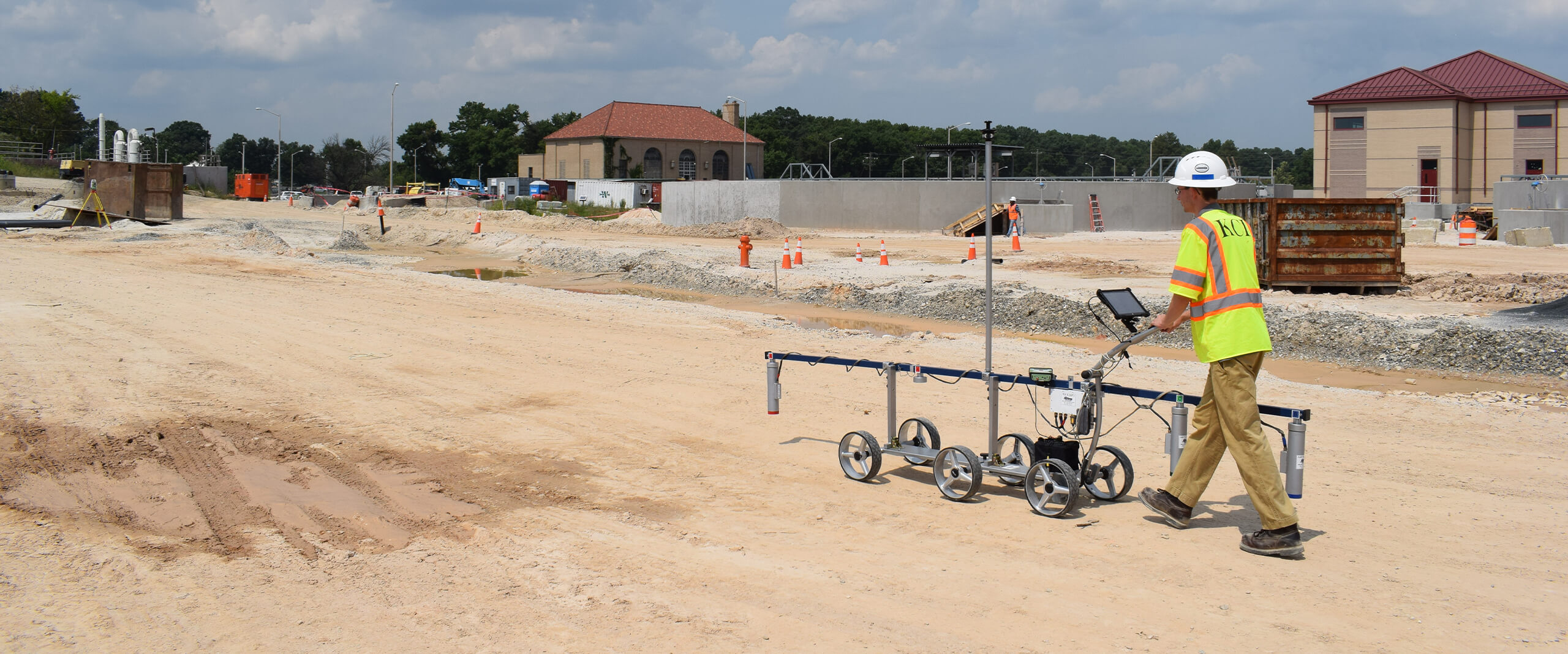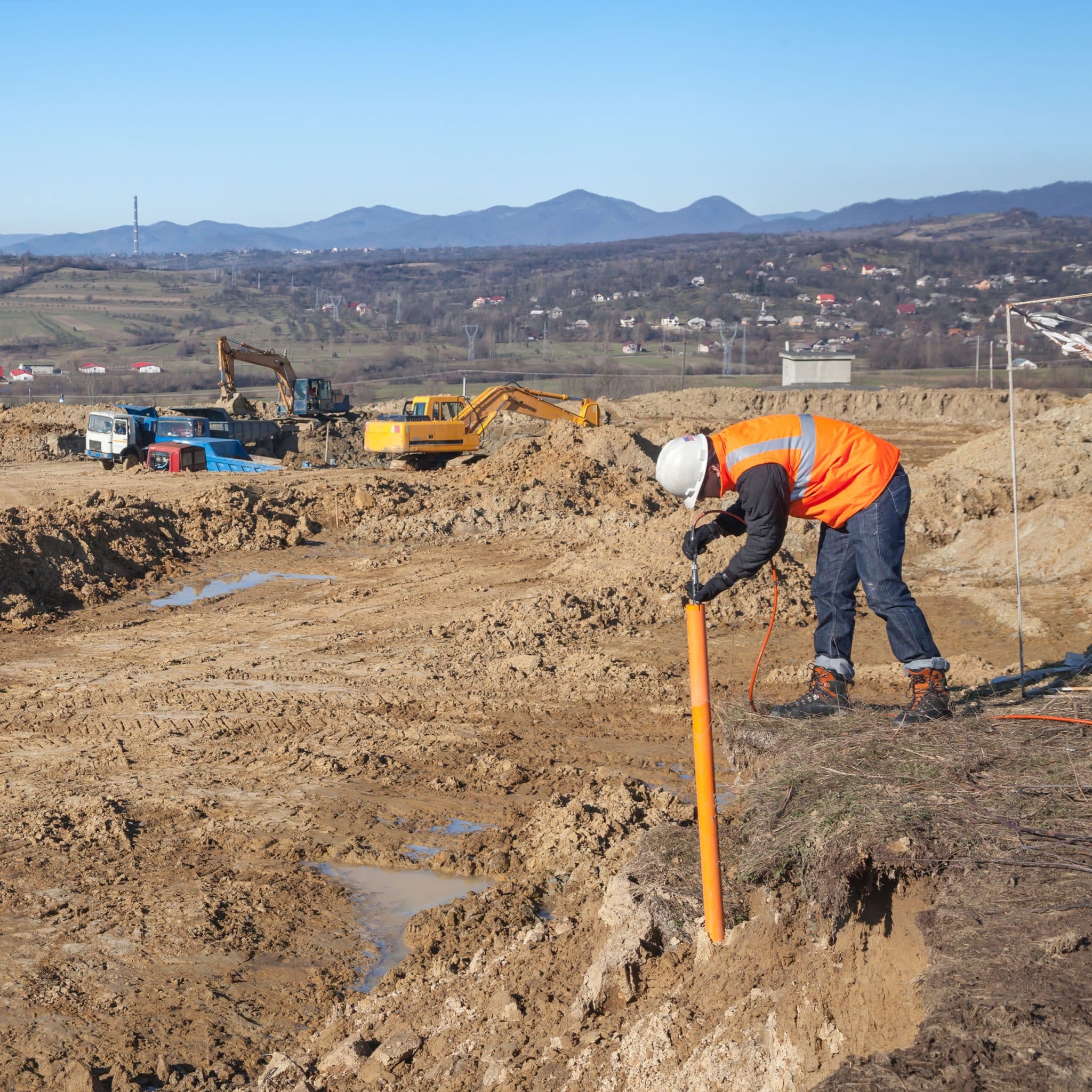Choosing the Right Consulting Engineer for Your Complicated Design Project
Wiki Article
Understanding the Crucial Function of the Geotechnical Industry in Modern Construction Projects and Infrastructure Growth
The geotechnical sector is a cornerstone of contemporary building and construction and infrastructure development, supplying crucial understandings right into dirt behavior that directly influence task end results. Via advanced soil evaluations and cutting-edge design services, geotechnical experts not just make certain structural stability however likewise address sustainability worries in the middle of developing environmental requirements.Significance of Soil Evaluation
Dirt evaluation plays a critical role in the geotechnical industry, working as the foundation for notified decision-making in building jobs. Precise dirt examination is crucial for determining the viability of a site for various sorts of structures, consisting of property homes, business buildings, and bridges. By evaluating soil structure, density, strength, and moisture content, designers can prepare for prospective difficulties and reduce threats connected with ground instability, disintegration, and settlement.The analysis process commonly includes a series of examinations and observations that provide crucial info about the subsurface problems. This data educates the style and construction procedures, making sure that structures are improved solid ground with adequate support. Furthermore, recognizing the soil account enables engineers to choose proper construction techniques and products, maximizing resource use and minimizing expenses.
Along with ensuring structural stability, dirt assessment adds to ecological sustainability. By recognizing potential contamination or unfavorable results on bordering environments, designers can carry out methods to shield these natural deposits. In general, thorough soil evaluation is vital in the geotechnical area, underpinning the safety, efficiency, and environmental duty of construction projects.
Key Geotechnical Methods
A range of crucial geotechnical strategies are used to boost the stability and evaluate and efficiency of construction sites. One foundational method is soil tasting and screening, which permits designers to establish the chemical and physical homes of the ground. This info is vital for making notified decisions concerning foundation design and building and construction approaches.An additional necessary strategy is site characterization, which includes the in-depth assessment of dirt and rock conditions through approaches such as borehole boring and in-situ testing. Strategies like Requirement Penetration Examinations (SPT) and Cone Infiltration Tests (CPT) provide useful data on soil toughness and stratigraphy.
Ground renovation methods, such as dirt stablizing and grouting, are also crucial in boosting the load-bearing capability of weak soils. These approaches can alleviate settlement and boost general site problems.
Furthermore, slope security analysis is important for identifying possible landslide dangers and ensuring the safety and security of excavations. This analysis often uses numerical modeling and restriction balance approaches to anticipate soil behavior under numerous conditions.
Incorporating these geotechnical strategies right into construction planning not just optimizes task results yet likewise ensures the long-lasting sustainability of infrastructure advancement.
Influence On Building Safety

In addition, efficient geotechnical design includes applying mitigation approaches for identified dangers. This may include soil stablizing techniques, maintaining frameworks, or drainage systems to ease hydrostatic stress. By dealing with these aspects, construction teams can minimize the likelihood of accidents and improve employee safety and security.
Additionally, constant surveillance of site conditions is essential throughout construction. Geotechnical instruments can supply real-time information regarding ground movement and stability, permitting prompt treatments when essential.
In significance, the geotechnical market plays a crucial role in protecting construction jobs. By focusing on ground honesty and employing extensive analysis approaches, the geotechnical field not just secures the workforce however additionally adds to the longevity and reliability of constructed facilities.
Sustainability in Geotechnical Practices

Furthermore, geotechnical engineers are now employing advanced modern technologies, such as geosynthetics, which enhance dirt security while lowering the quantity of material required. This not just preserves sources yet likewise causes less waste generation (geotechnical engineers). The integration of lasting layout principles into geotechnical engineering urges using renewable resource sources in building and construction procedures, better lowering carbon discharges
By carrying out these assessments, geotechnical specialists can develop methods that mitigate negative effects, making sure conformity with environmental guidelines. Overall, the focus on sustainability within geotechnical methods not just contributes to the longevity and resilience of framework but additionally promotes a responsible strategy to land and resource management.
Future Trends in Geotechnical Design
Innovation is driving the future of geotechnical engineering, as emerging modern technologies and approaches improve the market. The integration of advanced data analytics and expert system is established to revolutionize site investigation and danger analysis, enabling engineers to make even more educated choices based upon real-time information. Furthermore, the use of geosynthetic materials is acquiring traction, using lasting options that boost dirt security and lower environmental impact.One more significant trend is the fostering of automated and robot systems for monitoring and building procedures. These technologies not only enhance precision but also improve safety by decreasing human involvement in harmful settings. In addition, the implementation of Building Info Modeling (BIM) in geotechnical style promotes improved collaboration among stakeholders, enhancing job delivery and lowering expenses.
As environment change postures new obstacles, the market is significantly concentrating on resilience and versatility in layout methods, ensuring facilities can withstand severe climate events. Ultimately, the ongoing trend towards sustainability will certainly drive development in environmentally friendly products and methods, lining up geotechnical design with broader environmental objectives. Collectively, these patterns will certainly form a more effective, lasting, and resilient geotechnical landscape for future jobs.
Verdict

The geotechnical market is a cornerstone of modern building and construction and framework advancement, offering vital insights right into soil behavior that straight affect project outcomes. engineer of record.Dirt evaluation plays a vital role in the geotechnical sector, serving as the structure for notified decision-making in construction tasks. Generally, extensive soil analysis is important in the geo tech engineer geotechnical field, underpinning the safety and security, effectiveness, and ecological obligation of construction tasks
Building security is significantly affected by geotechnical practices, as the security and integrity of the ground straight affect the total safety of a building and construction site.In verdict, the geotechnical industry is crucial in contemporary construction and facilities growth, offering essential evaluations that ensure structural honesty and security.
Report this wiki page